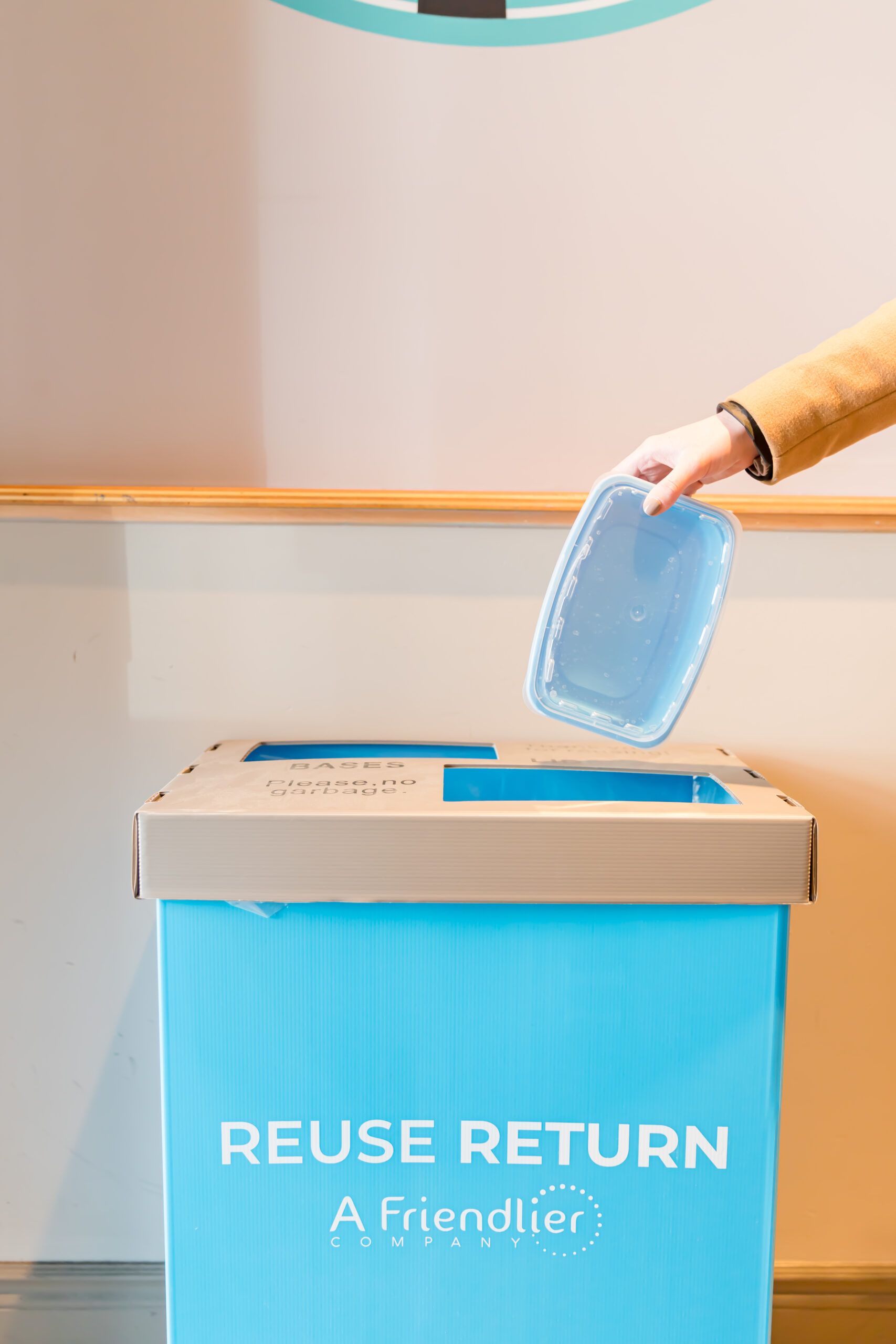
Compass Group Canada partners with Friendlier
by CM Staff

Compass Group Canada will deploy the sustainable packaging solution, starting within their Ontario locations in the coming weeks, with the intent to scale up as Friendlier expands across Canada.

Compass Group Canada partners with Friendlier
MISSISSAUGA — Compass Group Canada announced a partnership with local Canadian sustainability start-up, Friendlier, that offers a circular reusable packaging system. In 2021, Compass Group announced their Planet Promise, a global commitment to reach net zero GHGs by 2050. The announcement builds on this commitment, positioning Friendlier as a partner to help accelerate progress towards reducing and removing single use plastics from day-to-day operations. Compass Group Canada will deploy the sustainable packaging solution, starting within their Ontario locations in the coming weeks, with the intent to scale up as Friendlier expands across Canada.
Friendlier is a Canadian business in market since 2020. The company started by launching their circular reusable packaging offering from a handful of restaurants in the Guelph area, now working with large-scale operations throughout the GTA. Their containers – a sturdy plastic container made using 24% less GHGs than a comparable product – reportedly offers consumers an opportunity to participate in a truly sustainable, full circle packaging process.
“As a large food service provider, we have the opportunity and responsibility to make a meaningful impact on the planet – every decision we make, every container we can keep out of a landfill – that is critical in reaching our Planet Promise,” said Jana Vodicka, sustainability lead for Compass Group Canada. “We are excited to partner with a local, female-owned company who has developed an innovative way to eliminate single use plastic waste which is something we use every day in our operations. Given our size and scale, this is a significant positive move in fostering circular economies and moving away from the traditional use and dispose method,” she said.
The company’s decarbonisation strategy will reportedly be delivered through collaboration and investment across its global operations, including specific actions such as:
- Transitioning fleet vehicles globally to 100% plug-in electric
- Switching to renewable electricity across all its own operations
- Reformulating menus to be low carbon and switch towards more plant-based proteins
- Increase sourcing from regenerative agriculture
- Focusing on packaging solutions to further reduce single-use plastic
- Reducing food waste by 50% across its operations globally by 2030
- Increasing share of seasonal and locally sourced produce
- Investing in climate positive projects worldwide to support decarbonisation, compensation and neutralisation including reforestation, biodiversity, freshwater, land and ocean initiatives
- Delivering a global deforestation-free and land conversion-free supply chain strategy